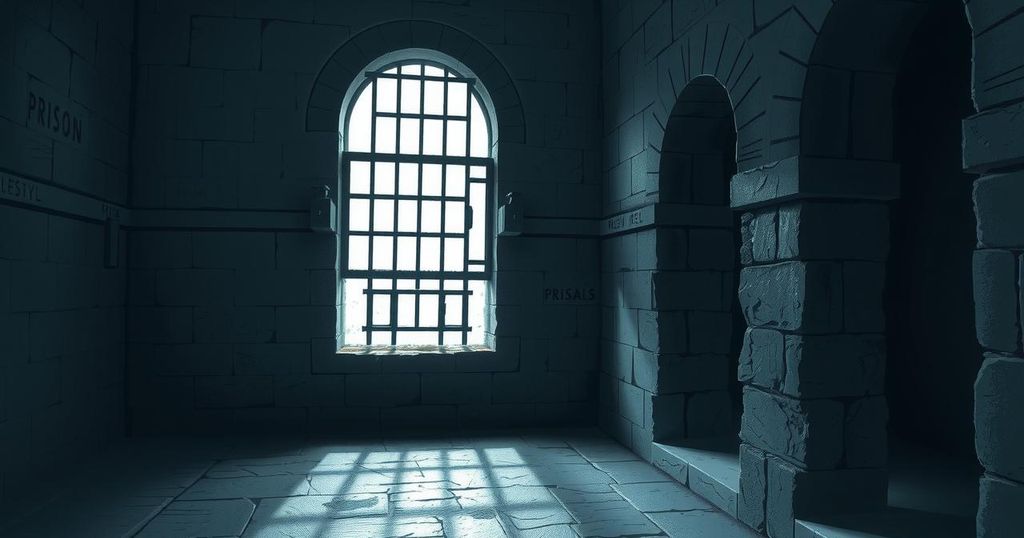Global news
AMERICAS DIVISION OF HUMAN RIGHTS WATCH, AND POLITICAL SCIENCE, ARBITRARY DETENTION, ASIA, CE, CECOT, CENTER FOR TERRORISM CONFINEMENT, CENTRO DE CONFINAMIENTO DEL TERRORISMO, COLOMBIA, CUBA, EL SALVADOR, HARVARD LAW SCHOOL, HUMAN RIGHTS, HUMAN RIGHTS WATCH, HUMAN_RIGHTS, INTERNATIONAL LAW, JUAN, JUANITA GOEBERTUS, LAW, LEGAL SYSTEM, LOS, NORTH AMERICA, PHILIPPINES, SANTA ANA, SOUTH AMERICA, TECOLUCA, TRUMP, U. S, UN, UN HUMAN RIGHTS COMMITTEE, UNITED STATES, UNIVERSIDAD, UNIVERSIDAD DE LOS ANDES
Isaac Bennett
0 Comments
Human Rights Violations in El Salvador’s Prisons: A Declaration by Human Rights Watch
Juanita Goebertus from Human Rights Watch outlines substantial human rights violations in El Salvador’s prisons, especially concerning the treatment of detainees under the state of emergency. Key concerns include overcrowding, abuse, lack of medical care, and the transfer of child detainees to adult facilities. These findings necessitate immediate intervention to safeguard human rights in the region.
Juanita Goebertus, the Director of the Americas Division of Human Rights Watch, provides a declaration regarding prison conditions in El Salvador in relation to the J.G.G. v. Trump case. She holds dual bachelor’s degrees in Law and Political Science alongside an LLM from Harvard Law School. Her experience includes overseeing the monitoring of El Salvador’s human rights conditions, with multiple trips to the country since 2022.
Goebertus notes that individuals deported under the 1789 Alien Enemies Act have been sent to the Centro de Confinamiento del Terrorismo (CECOT) in Tecoluca. Initially designed for 20,000 detainees, the prison’s capacity was later reported to accommodate 40,000, raising significant concerns regarding individual treatment standards as per the UN’s rules for prisoners.
Communication between detainees at CECOT and their families or lawyers is severely restricted, as they typically only appear in group online court hearings. The Salvadoran government has labeled these detainees as “terrorists,” with no reports of any released individuals, and permits limited access for journalists under stringent conditions. Videos show that prisoners are allowed mere 30 minutes out of their cells per day.
Although CECOT is believed to possess better infrastructure than other prisons, reports indicate that detainee mistreatment mirrors that found in facilities like Izalco, La Esperanza, and Santa Ana, reflecting issues such as torture and insufficient healthcare and nutrition. Since a state of emergency began in March 2022, 85,000 people, approximately 1.4% of the population, have reportedly been detained amid widespread due process rights violations.
Human Rights Watch estimates over 109,000 individuals are imprisoned in facilities designed for far fewer, with more than 350 reported deaths in these institutions since the state of emergency. Furthermore, a recent report highlighted the grave human rights abuses against more than 3,300 children, with many lacking connections to illegal activities. Shockingly, children detained for organized crime will potentially be moved to adult facilities, which breaches juvenile justice standards.
Interviews with released prisoners and their families revealed brutal conditions, including beatings upon entry and overcrowded holding cells. A specific case involved an 18-year-old claiming guards severely assaulted him, leading to a broken rib, while another detainee described torturous waterboarding experiences. Evidence also shows substantial health-related suffering in the overcrowded prisons, with many failing to receive necessary medical treatment.
Goebertus also reports concerning practices regarding respectful handling of deceased detainees, highlighting instances of unreported deaths and mass burials, raising issues of potential enforced disappearances. Among the deceased, at least four individuals exhibited signs suggesting possible police violence.
The findings from past reports, including “Deported to Danger,” also reveal alarming trends regarding treatment of Salvadoran deportees in U.S. custody, underlining a pattern of systemic abuse during detainment. Goebertus concludes her declaration reiterating the critical need for urgent action to combat these human rights violations occurring in El Salvador’s prison system.
The declaration by Juanita Goebertus from Human Rights Watch underscores severe human rights violations in El Salvador’s prisons, particularly under the ongoing state of emergency. Detainees face extreme overcrowding, inadequate medical care, and abusive treatment, breaching international standards. Furthermore, the situation of children being transferred to adult facilities raises significant concerns regarding their safety. This comprehensive documentation calls for immediate attention and action to address these human rights abuses.
Original Source: www.hrw.org




Post Comment